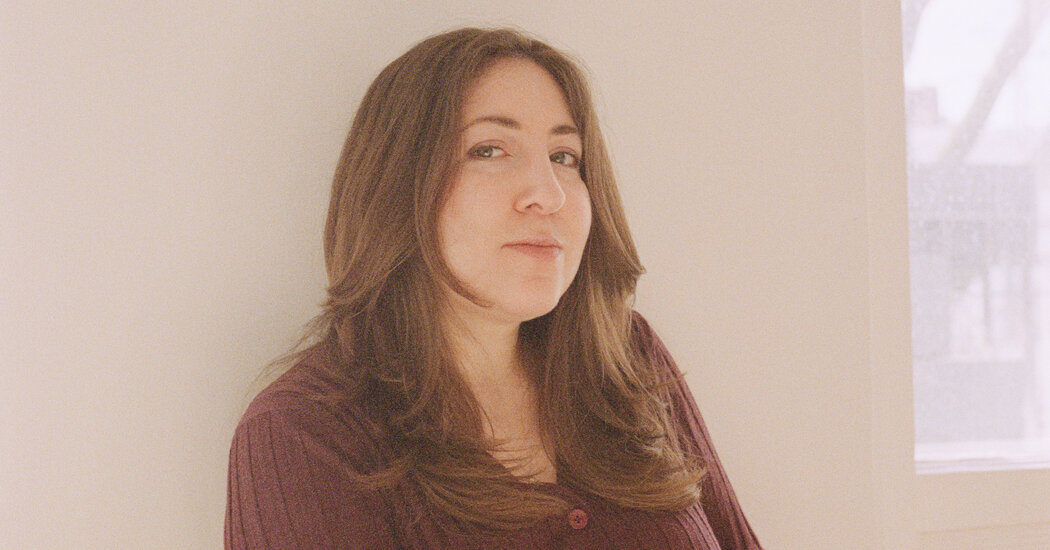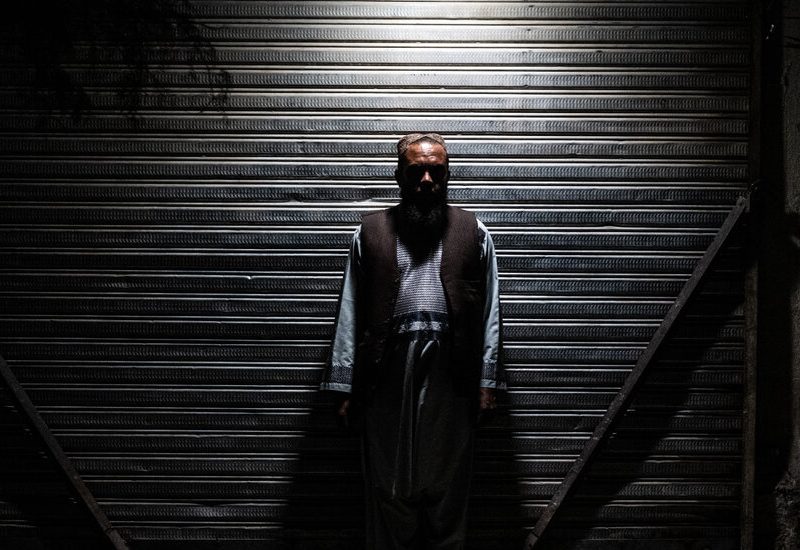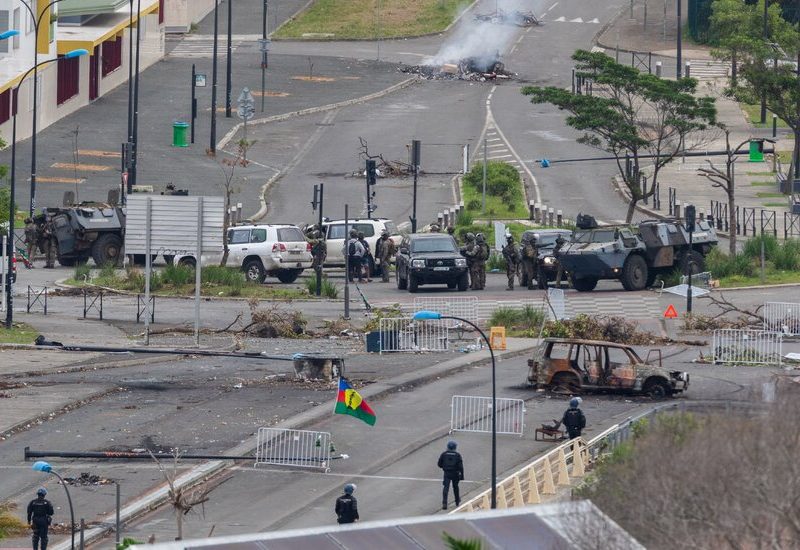The writer Deborah Feldman has been rattling expectations ever since she published “Unorthodox,” a 2012 memoir of her departure from her Hasidic community in New York, which was later made into an acclaimed Netflix series. Feldman, whose first language is Yiddish, emigrated to Berlin a decade ago. She has published books in English and German. And since the start of the Israel-Hamas war last October, her writings and interviews have touched a nerve in Germany, where she is now a citizen.
She became a rare voice in German media: a Jewish writer critical of Germany’s unquestioning support of Israel, and the stifling of dissenting voices in the country’s cultural institutions. She joined more than a hundred Jewish writers, artists and academics who signed a letter condemning Germany’s ban on gatherings showing support for Palestinians, and, in a widely shared television appearance, she emotionally accused German political leaders of misapplying the lessons of the crimes of the Third Reich.
At a recent lunch in central Berlin, at a restaurant around the corner from the city’s restored grand synagogue, we discussed the rise and fall of a cultural capital, the place of Jews in contemporary German society, and how the legacy of the Holocaust shapes a culture of both historical responsibility and political fear. This conversation has been condensed and edited for clarity.
You’ve been living here in Berlin since 2014. How big of an adjustment was it from your earlier life in New York?
I love Berlin. Moving here really was a very individual decision for me. I grew up ultra-Orthodox in New York, and when I left the community, I didn’t really leave. For many Orthodox people, if you stay where you come from, there’s a sense of having your past in your backyard. A lot of my ex-Orthodox friends from Israel say the same. There’s a whole scene of formerly Orthodox people in Berlin, a lot of them from Israel.
And ten years ago, it was still a very exciting city. Honestly, it was the first place where I actually encountered Muslims and Palestinians. Even though I’m from New York City, my experience of New York was quite segregated. Things took a downturn after that, but it was very exciting and it was very diverse, and it was full of people who were reinventing themselves and running away from things. A lot of refugees, a lot of fascinating biographies, a lot of outsiders. New York was becoming a city of bankers and prostitutes. And Berlin still felt anticapitalist, it felt indie, and also: I’m German.
You were raised by Holocaust survivors. And one of your great-grandparents left Bavaria just before the start of the war.
My great-grandfather was arrested in 1938, when he was 43. He was one of the last people to get a doctoral degree before it was made illegal for Jews.
In the weeks after Hamas’s attack on residents of southern Israel, as the siege of Gaza was intensifying, you appeared on a German talk show along with Robert Habeck, the vice chancellor. You used some tough language; you accused politicians in this country of failing to learn from the Holocaust.
I said that you’re using the Holocaust as justification for the abandonment of moral clarity. The backlash was enormous. People wrote diatribes trying to explain why I was wrong and why I shouldn’t be allowed on TV.
What I really think has happened here is that memory culture has produced two warring phenomena.
It produced a society that is paralyzed by guilt and discomfort. Germany doesn’t have emotional space and energy for any other historical responsibility other than the reality that it perpetrated the Holocaust.
But at the same time, official memory culture created an unchecked arena for politicians to abuse that history. These politicians don’t reflect the views of society, but they don’t feel the need to, because they’ve created a culture in which society doesn’t have a say in this issue. And it is so sad that the Jewish people have such diverse cultural, ethnic and religious identities, but in Germany they have to subsume it into the identity of the Holocaust victim.
The last five years saw frequent debates about how the memory culture you’re describing — these institutional efforts to face the country’s Nazi past and responsibility for the Holocaust — should account for Germany’s current reality as a diverse, multiethnic society. After Oct. 7, that seems to have got much harder.
This has been exactly my struggle. All of these center-left people that I know, people who vote S.P.D. or Green, seemed to be on the good side of things. They would talk about racism and diversity. And then you have this story with Documenta …
The country’s most important art exhibition, which fell to pieces in 2022 amid accusations of antisemitism and racism. And after Oct. 7, the team tasked with plotting the next edition of Documenta collapsed.
Documenta was a very big moment for artists on this issue. Everyone started getting very afraid. What we’ve been experiencing is a gap between the cultural establishment and the political structures that fund the culture scene.
Artists and arts professionals keep telling me that this appears like a turning point for Berlin’s status as a European cultural center. Does the city feel transformed to you?
I have a lot of Palestinian friends. A lot of Israeli friends. A lot of friends with an immigrant background. My whole community was just paralyzed by fear and hopelessness and this feeling of being humiliated, denigrated, dehumanized.
I feel increasingly uncomfortable. I’ve reapplied for my American passport, which I allowed to expire. I’ve discussed with my husband the possibility that if the situation goes south, would we leave? It’s really hard to keep going, and the only way I manage to occasionally show my face and make my voice heard is by mustering a righteous anger, which doesn’t always come across the best. But a lot of people try to stop me.
Is it also possible for an alternative to emerge? After the blowup around the revoked literature prize for Adania Shibli, the Berlin-based Palestinian writer, she decided to publish in the Berlin Review, a new cultural publication.
The Berlin Review is so cathartic, and it’s such a milestone. It honors Berlin. Things like that are what’s keeping me here, because I have lost my faith in German media. I never had faith in German politics, but now I really have no hope for German politics. Honestly, I think what I still feel connected to are the people who tell me privately: “I agree with you, but if I say it, I lose my job.”



